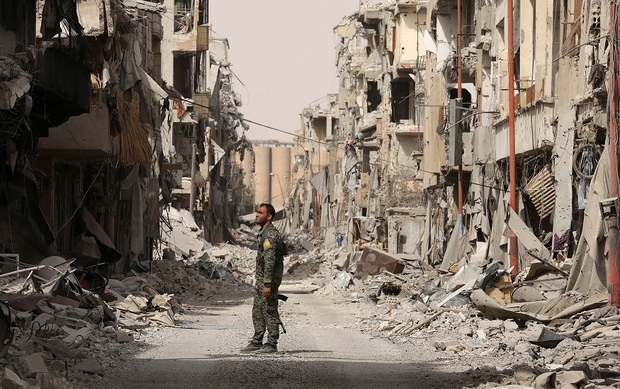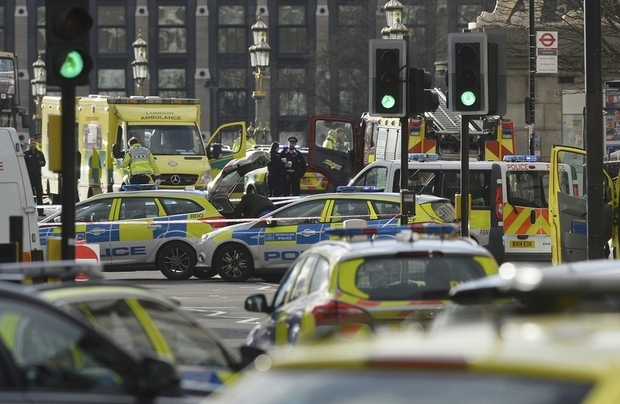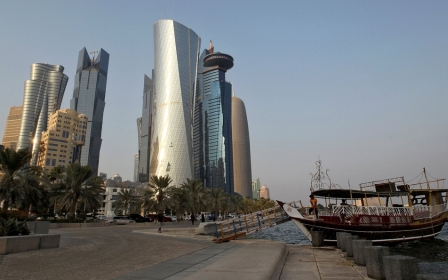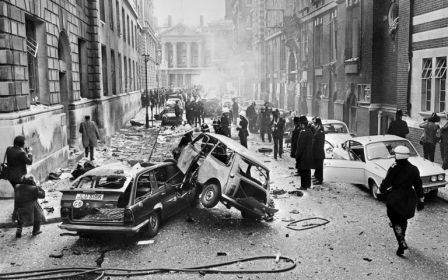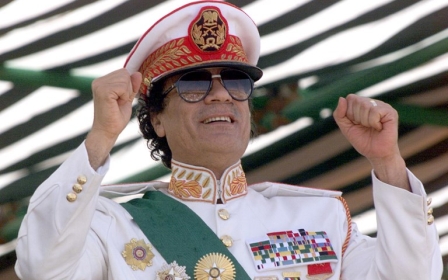Saudi policies destabilising Middle East, says Qatar foreign minister
LONDON - Saudi Arabia’s policies in Yemen and Lebanon are fracturing the Middle East where authoritarian rule threatens to create an environment perfect for terrorism, Qatar’s foreign minister said at a conference in London on Thursday.
The policies have created a “humanitarian catastrophe in Yemen, divided the Gulf states by attacking Qatar without an exit strategy and tried to pressurise the prime minister of Lebanon to resign will just leave a power vacuum,” Mohammad bin Abdulrahman al-Thani told journalists.
“It has all been counterproductive to the stability of the region.”
Thani was speaking at the conference organised by the Royal United Services Institute (RUSI) which brought together experts to discuss the threat of terrorism with the “gradual defeat” of the Islamic State (IS) group.
And the event comes against a backdrop of even greater turbulence in the region on top of year-long wars already raging in Libya, Syria and Yemen.
The months-old Gulf rift pitting Qatar against the UAE, Saudi Arabia, Bahrain and Egypt – which accuse Doha of sponsoring terrorism - continues to unfold as two organisations and 11 individuals, including Egyptian scholar Yusuf al-Qaradawi, were added to the quartet’s terrorist list on Thursday.
Meanwhile, recent attention has been on Saudi Arabia where Crown Prince Mohammed bin Salman’s anti-corruption sweep, paired with Lebanon Prime Minister Saad Hariri’s resignation from Riyadh – and then backtrack this week from Beirut - have shaken things up so much that seasoned analysts say anything is possible.
'So who is the enemy and what is the root cause of terrorism? Tyranny, authoritarianism and the absence of justice'
- Mohammad bin Abdulrahman al-Thani, Qatari Foreign Minister
Thani's appearance, in which he pledged Qatar's commitment to "eradicating terrorism of all kinds", is the latest in a series of conferences and events in London, presided over by Gulf ministers as their diplomatic spat is battled out publicly.
"I come from a region brimming with extremism," Al Thani told the audience. "Although the Middle East was once a region of peace and co-existence, it has unfortunately been tranferred into a region of terrorist and authoritarians where extremism flourishes."
"So who is the enemy and what is the root cause of terrorism? Tyranny, authoritarianism and the absence of justice."
Qatar is run by the royal family. The government has long-promised elections of the Shura Council, a consultative body now appointed by decree without legislative authority. Earlier this month, leader Sheikh Tamim bin Hamad Al Thani said they would take place in 2019.
Amid the regional tumult and diplomatic disputes, the anti-IS coalition’s recent victories in Mosul and Raqqa may have seemed a bright spot.
But the true defeat of IS, said several experts on Thursday, is far off: the group threatens to re-emerge as the insurgency movement from which it started while the drivers of terrorism across the Middle East and North Africa continue to be fuelled.
“I don’t think we are anywhere near looking at an after-Daesh reality,” said Shiraz Maher, Deputy Director of the International Centre for the Study of Radicalisation and Political Violence at King’s College London, referring to the Arabic name for IS.
“Daesh is here, it’s very much remaining as a player on the ground,” he said.
'A pretty depressing picture'
According to RUSI’s 2017 Global Terrorism Index released last week, three-quarters of deaths linked to terrorism came from just five countries: Iraq, Syria, Afghanistan, Pakistan and Nigeria.
That might seem like a contained problem, said Jane Marriott, the director of the Joint International Count-Terrorism Unit formed last year, but the other quarter of deaths happened in an increasing spread of countries this year, jumping to 77 from 65 in 2016 and don't include the attacks in the UK this year. In Iraq, attacks increased by 40 percent.
Three-quarter of deaths linked to terrorism came from five countries in 2016 - but the other quarter happened in 77 different countries
- RUSI 2017 Global Terrorism Index
“It’s a pretty depressing picture that we are painting,” she said, adding there are “no easy solutions”.
So how to go about tackling terrorism amid regional turmoil and, closer to home, the impending Brexit divorce, especially when even the definition of extremism remains unsettled?
Clearly, said Marriott, military intervention to defeat IS’s caliphate “has to be good thing . . . but then you have to get the follow up right”.
“Because if we – as the international community - don’t get the politics right, the reconstruction and the economic right and the government solutions in the right place, then it leads to Daesh 2.0 and Al-Qaeda 3.0,” she said.
Over the past 17 years, according to the 2017 Global Terrorism Index, 99 percent of terrorism-related deaths have been in countries that are either in conflict or have high levels of terror, including extrajudicial killings, torture and imprisonment without trial.
“We talk about Daesh and we talk about the crimes committed by IS, but the biggest criminal of all and the source of this is Bashar al-Assad,” Maher said.
Maher’s comments come a day after UN Human Rights chief Zeid Raad al-Hussein said that the conviction this week of Ratko Mladic, the former Bosnian Serb military commander, was a warning to Assad and others.
De Kerchove, the EU counter-terrorism coordinator, also pointed to the situation in the Sahel. “If you are living in northern Mali, you either work for a terrorist group or organised crime,” he said.
“So if you don’t address first weak governments and the level of corruption and you don’t decrease state violence, you will not really deal with the issue,” he said. “We need to do more. We need probably to do better.”
Marriott challenged the audience to expand exactly who 'we' is.
"We look all quite well-dressed. We are well-suited. We’re overwhelmingly white and we are overwhelmingly male – so if we do genuinely want whole-of-government solutions and whole-of-society solutions, how do we ensure that voices across those societies are properly reflected in our policy and position making?"
New MEE newsletter: Jerusalem Dispatch
Sign up to get the latest insights and analysis on Israel-Palestine, alongside Turkey Unpacked and other MEE newsletters
Middle East Eye delivers independent and unrivalled coverage and analysis of the Middle East, North Africa and beyond. To learn more about republishing this content and the associated fees, please fill out this form. More about MEE can be found here.


